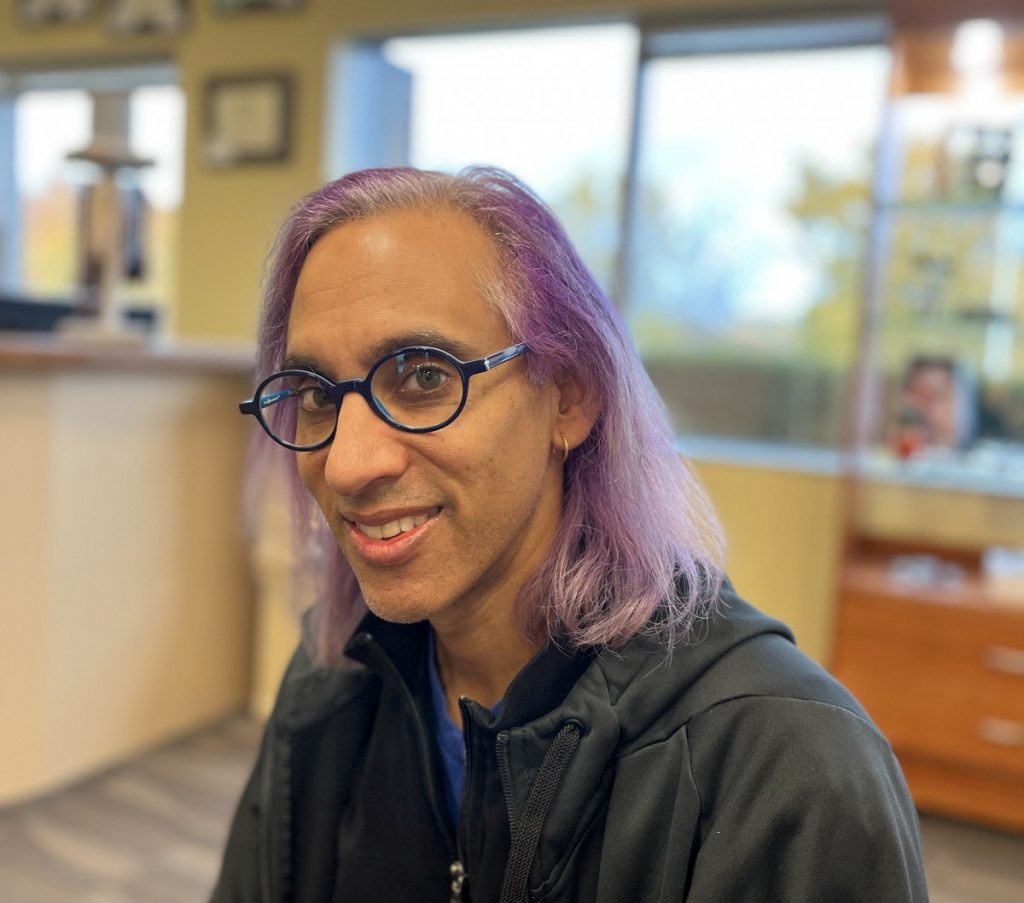
In an exploration of a no-longer-taboo topic, Deepak Sarma will dive into the benefits of psychedelics used to create a mystical and spiritual experience with their Interfaith lecture.
Sarma — a professor in the Department of Religious Studies at Case Western Reserve University — will deliver their lecture at 2 p.m. today in the Hall of Philosophy to close the Week Nine Interfaith Lecture Series theme, “Realizing Our One World: Strengthening Interconnection.”
They said they will speak on the very first dichotomy between the Global South and North allopathic community, and how it was a taboo topic before it was “recolonized,” in a sense.
“The allopathic community of the Global North are embracing substances that come out of the Global South, (such as) psilocybin, ayahuasca or ibogaine in the African context,” Sarma said. “Peyote, of course, is part of that but it’s not being deployed by Global North allopathic communities.”
Psychedelics, they said, are having an interesting moment, particularly in the relationship between the Global North and South. In precolonial times, psychedelics were prohibited due to the power seen in them and their respective continents of origin, but the tides are turning, and now some of these substances are being embraced.
The tension between the different ways psychedelics are used in the Global North and South can be compared to cultural appropriation of clothing, they said. It’s not until a substance or item is made popular in Western culture that it gets taken seriously.
“When Caucasians in America appropriate, or take on, clothing styles of African Americans — which were considered poorly when African Americans wear them — but when Caucasians wear them, they have cultural capital,” Sarma said.
This sense of irony, they said, is why the audience should question whether or not the use of entheogens — a chemical substance, typically of plant origin, that is ingested to produce a non-ordinary state of consciousness for religious or spiritual purposes — is an empty agenda, or if it can produce a real spiritual or mystical experience.
Sarma said listening to Grateful Dead was a formative experience, because the concerts they attended in California allowed them to express themselves culturally. After Sarma’s family left India, they tried to steer away from Indian culture to fit in, but found white people adorned in Indian and Hindu fashion.
“It piqued my curiosity,” Sarma said. “In a funny way, you can say that my reluctance on being Indian was changed or altered by giving a peculiar kind of validation by the dominant paradigm.”
Because children of immigrants are often torn between embracing their parents’ culture and a new one, it’s hard to embrace one or the other, they said.
Not fitting into the mainstream can then end up as a source of shame.
In their work, Sarma’s goal is to ask questions alongside others, not simply teach them. They have served as a cultural consultant for Hinduism with Netflix on a variety of shows, such as “Cocomelon” and “Thomas the Train,” as well as consulting with Mattel, Moonbug and American Greetings. This was a transformative experience, they said, especially when paired with the curation work they do at the Cleveland Museum of Art.
“The audience for these programs are in the hundreds of thousands, if not millions,” Sarma said. “It’s a completely different satisfaction and weight for my academic curiosities and interests that have an effect on the world.”
Whether real or not, Sarma said in the context of Indian philosophy, hallucinations are a facet of psychedelic use.
Through the centuries, explanations of entheogenic experiences have been sought out by various theologians and philosophers for a variety of reasons, but Sarma wants the audience to consider the possibility of using entheogens for a spiritual or mystical experience.
“My baseline goal is to have people recognize the question, their presuppositions and perhaps change them, or at least wonder about their authenticity,” Sarma said.




